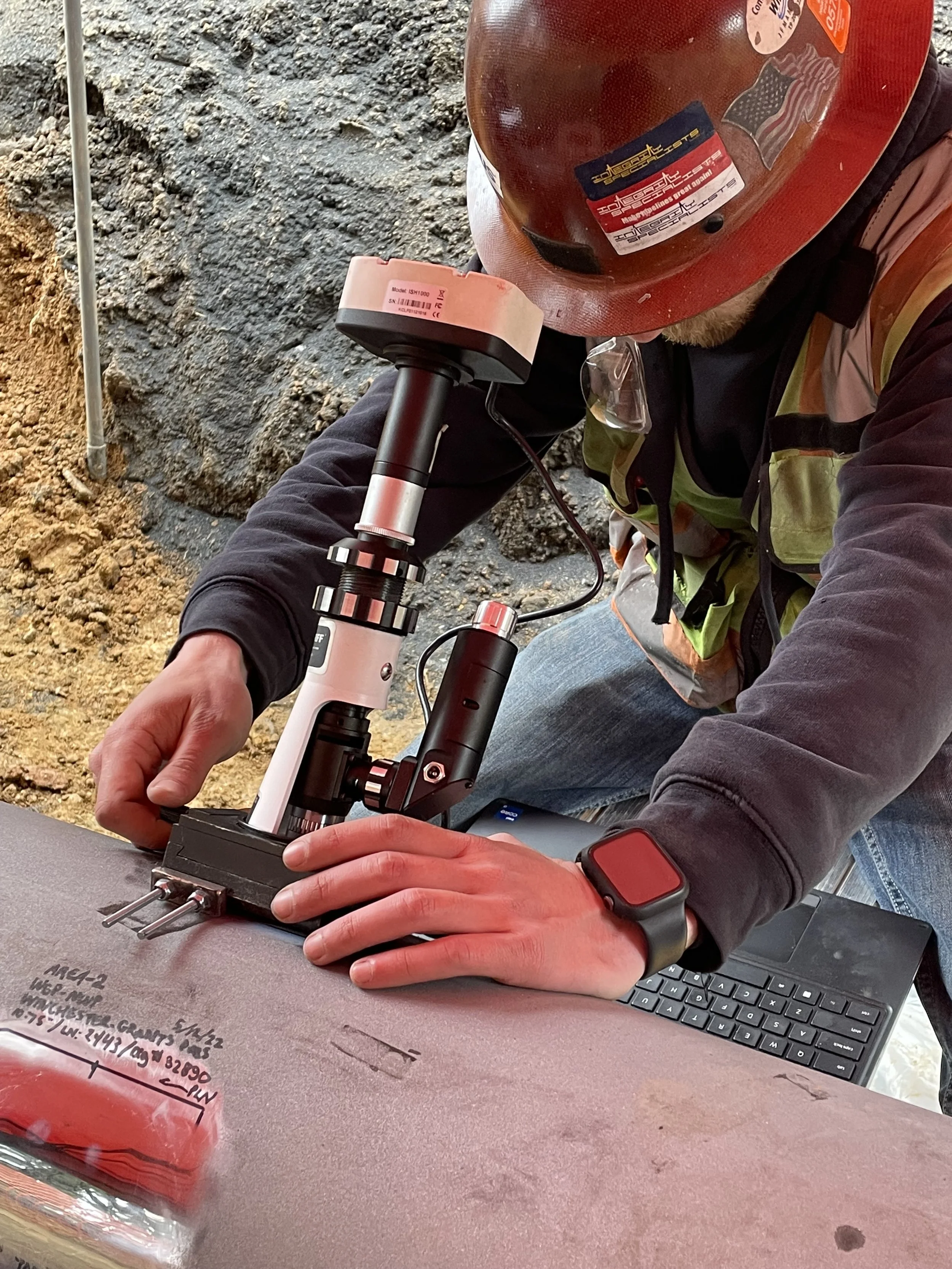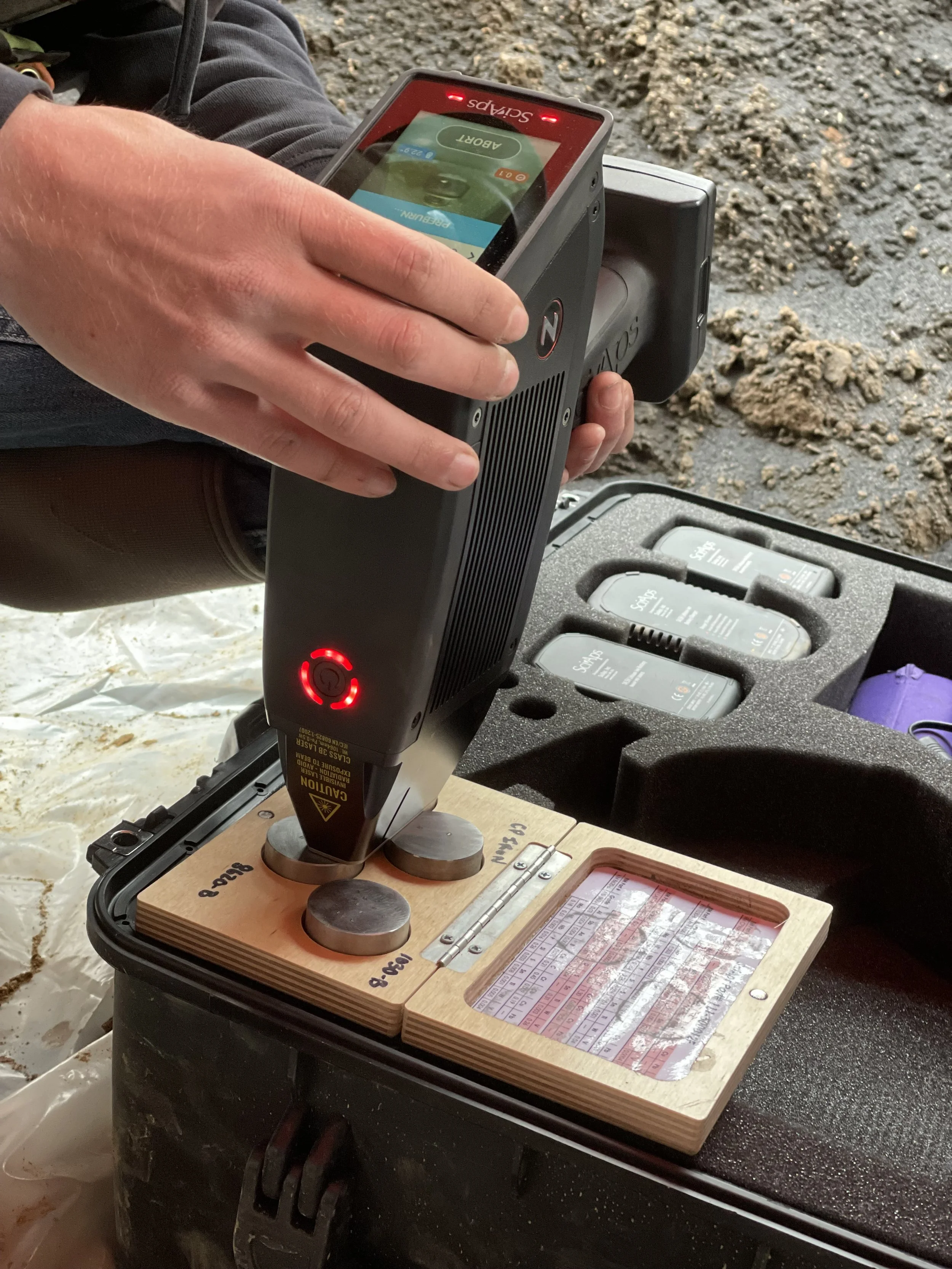Advanced Services
In this day and age, technology is advancing rapidly. Integrity Specialists strives to be a leader in emerging technologies. Do you have a specialized inspection need? Call us and we can discuss the appropriate technology to fit your needs.
PAUT
Phased Array. Manual and automated scanning. Fully encoded and digitally recorded. Greatly reduces time over x-ray. Safer to use on site with no radioactive source. Is very good at detecting planer defects that x-ray can miss. Save money with less down time for X-ray shots.
Creaform Laser Scanning
Handy Scan 700 with Pipecheck software. Highly accurate and repeatable. Customizable and reviewable by the client. Built in remaining strength and strain analysis. Visual 3D reporting. Mechanical damage and dent strain analysis. Creaform offers innovative and highly-effective alternatives to traditional NDT methods that are widely used in the oil and gas industry. Its solution for corrosion assessment provides reliability beyond current regulatory requirements, which follow ASME code B31G. Applications of pipeline corrosion assessment include:
3D and 2D material loss color map
Automatically applied interaction rules
Burst pressure calculation (B31G, B31G modified, effective area)
Eddyfi
The eddy current Array (ECDA), a digital electromagnetic NDT technique. The Eddyfi Spyne is an adaptable surface ECA screening tool designed specifically to maximize productivity for the detection of subsurface defects of stress corrosion cracking, (SCC), identification of hard spots and pitting of materials. Its ultra-fast capabilities pave the wave for unprecedented efficiency. Detection can be completed in minutes with little surface preparation. Analyzation of complex surfaces is not an issue. Learn more>>
Material Verification
The role of non-destructive material characterization has grown with measurement technology for positive material identification as an element of quality control processes or in support of engineering assessment of materials with uncertain degrees. Quantitative chemical analysis may be performed by one or more techniques. Inductively coupled plasma spectroscopy analysis and x-ray fluorescence spectroscopy (XRF).
XRF (X-ray fluorescence spectroscopy), is a portable technique that can be used for direct analysis of solid metal samples. XRF is a fast technique and is non-destructive to the sample; however, XRF techniques are not capable of measuring carbon or lighter elements with atomic numbers less than 12.
LIBS (laser-induced breakdown spectroscopy), is a portable technique that delivers very accurate chemistry for carbon analysis in an argon-purged environment.
FRONTICS is a portable technique using material displacement measurement through the use of a weight-imposed probe tip. Testing is applied in a continuous manner, thereby evaluating a variety of physical properties of a material being tested. These properties include tensile, fracture, and residual stresses. This technique is good for all vintages and grades of manufactured pipe.
IN-SITU METALLOGRAPHY, coupled with portable hardness testing equipment and elemental analysis, can provide the user with material-grade results for pre-1980’s production line pipe.




